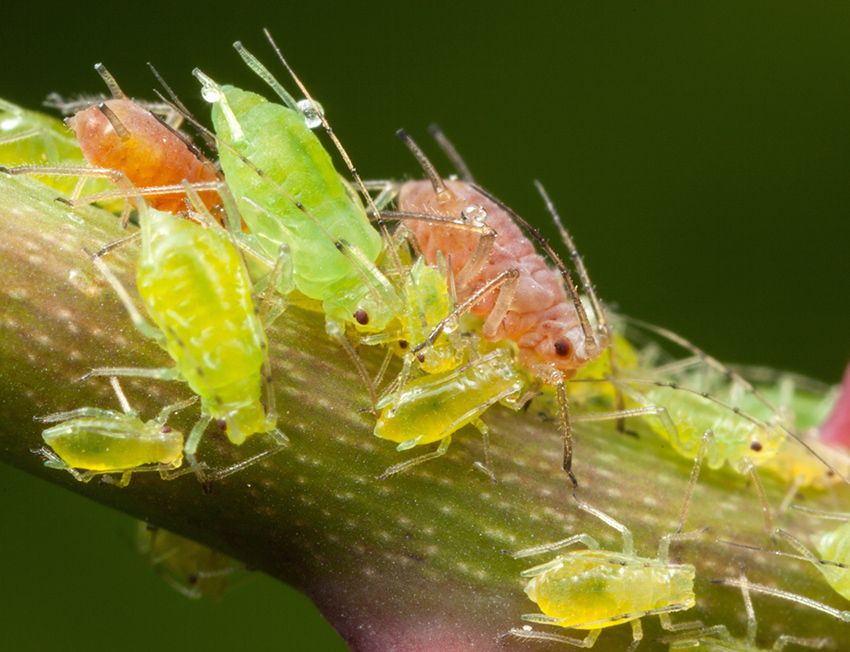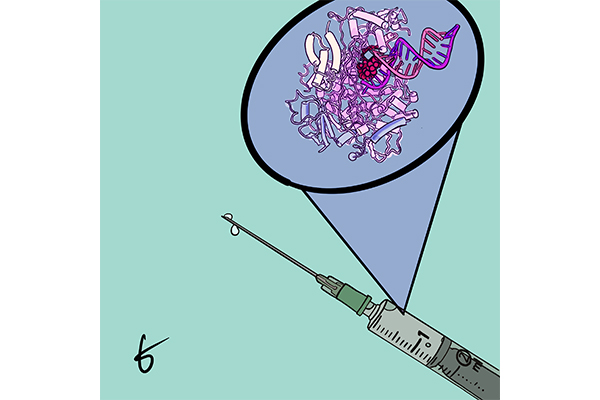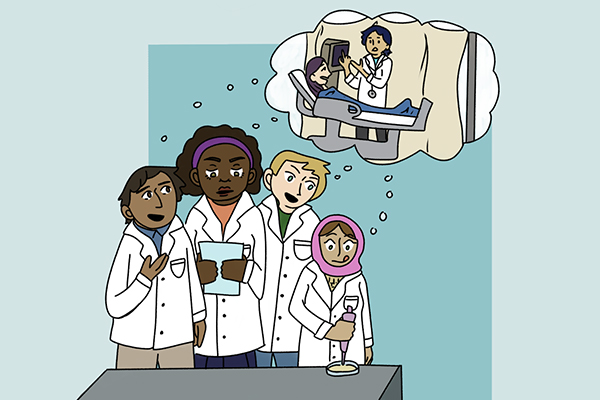Scientists at UT and Texas A&M research labs plan on genetically modifying symbiotic bacteria living inside aphids to deliver vaccine-like molecules to threatened crops, as part of the Defense Advanced Research Projects Agency-funded Insect Allies Program.
When aphids, a type of insect that acts as a plant parasite, feed on crops, they may also leave behind small molecules that can affect the plant. The goal of the project is to have aphids deliver immunizations to at-risk crops, said Nancy Moran, UT integrative biology professor and member of the Insect Allies research team.
“Aphids are basically little syringes … they suck from the plant but they also actually spit back into the plant,” Moran said.
The plan is to have the aphids inject the crops with double-stranded RNA, a genetic molecule similar to DNA and commonly used by viruses, with genetic code matching that of a virus, Moran said. The plants can then learn to recognize these codes and launch immune responses if the plant is ever infected with real viruses.
“This double-stranded RNA is a sign that a virus is around,” Moran said. “(The plants) can take that RNA, cut it up, figure out the sequence and then attack anything that has that sequence.”
It is difficult to genetically modify the aphids themselves to produce these double-stranded RNA molecules, Moran said. Instead, the team plans on genetically modifying symbiotic bacteria living within the aphids to produce it themselves.
“Bacteria living in the … aphids will produce plant viral RNA molecules carrying the protective genes,” said Tom McKnight, Texas A&M biology department head and member of the Insect Allies research team. “Once these viral RNA molecules and their genetic payload enter plant cells near the site where the aphid is feeding, the virus will replicate and spread as it usually does.”
Aphids already spread these kinds of molecules through normal feeding, Moran added.
“Aphids are the main vectors of (plant) viruses,” she said. “Most of the aphid economical damage to crops is due to their work as vectors of viruses more than direct feeding.”
Thus, while aphids are considered pests, transmitting the harmless RNA would not be as damaging as letting disease sweep through the population, McKnight said.
The team is taking many precautions to ensure that the genetically-modified plants, insects and bacteria do not accidentally escape the lab, Moran said. The team is also working to ensure that, if and when released, the aphids do not cause damage to other plants or reproduce in the wild, she added.
“The interesting thing about aphids is that they mostly don’t mate … many of the populations are purely asexual,” Moran said. “They could still spread, but they’re not going to genetically mix with anything.”
The researchers will also be working to shorten the lifespans of the modified aphids so that they cannot reproduce at all, she said. Aphids are ideal candidates to work as plant vaccine distributors because of their tendency to feed only on certain plants, she added.
While plant seeds themselves can be made resistant to certain pests or diseases through early genetic modification, this is typically time-consuming, McKnight said.
“This system is designed to allow rapid genetic modification of crop plants that are already in the field when a new biological pest arrives,” he said.
Overall, the team hopes that this technique will provide a quick-response method to protect our food from threats.
“The idea is (to obtain) food security and improve the set of tools that agriculture has to fight plant disease,” Moran said.





















